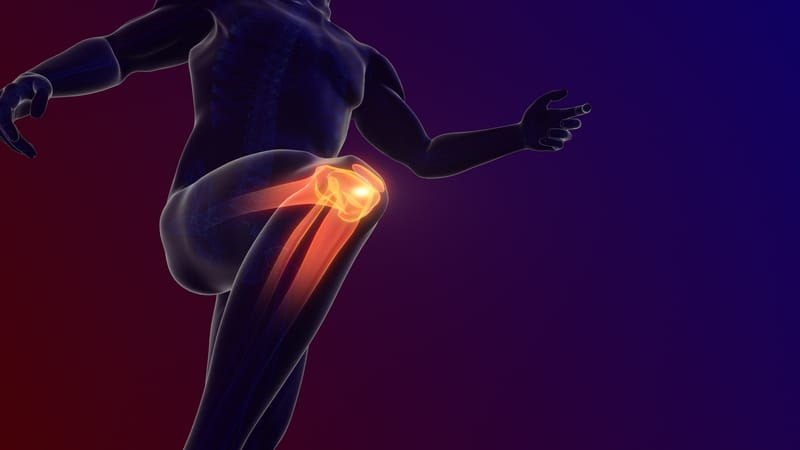
On 26 August, 2020, the media reported on a change in legislation that would result in sexual offence survivors being fined thousands of dollars, and even sent to prison, for publishing information that would reveal the identity post-conviction of the offender.
However, the position is not so straightforward. Section 4(1A) of the Judicial Proceedings Reports Act 1958 (Vic) (JPRA) – the offence that restricts the publishing of any information that can lead to the identification of a sexual offence survivor – has existed since 1991.
The offence was enacted to protect the identity of sexual offence survivors, allowing such details to be published only in limited circumstances. A person found breaching the provision is liable to a maximum of 20 penalty units ($3304.40) or to a maximum of four months’ imprisonment, or, if the person is a corporation, to a maximum of 50 penalty units ($8261).
Such offences aim to ensure that sexual offence complainants aren't subjected to undue distress and invasions of privacy, and to encourage reporting and prosecution of sexual offences.
As summarised by the Honorable Frank Vincent AO QC in his "Open Courts Act Review", some sexual offence survivors may "not wish to have what happened to them to be generally known, and their privacy must be respected and protected".
For example, in 2007, Jane Doe’s husband was convicted of raping her. On the day of his sentencing, ABC News broadcast separate news reports identifying the defendant by name, and that he was convicted of rapes within marriage. In one bulletin, Jane Doe’s real name was published without her consent. During subsequent civil proceedings against the ABC, Jane Doe stated that when she had heard the broadcast, she “… felt I had no control at all over anything that was happening in my life at that moment, when probably an hour ago I had a piece of my life given back to me when he was found guilty ... I felt humiliated. I felt like everyone in the street and everyone around me knows that it was on the radio.”
Both the ABC journalist and sub-editor in the matter were charged with, and pleaded guilty to, Section 4(1A).
While some survivors will want their identity to remain private, others may wish to exercise their voice and their freedom of speech to publish information about themselves, or to give permission to third parties to do so.
As Vincent identified in his review:
"An increasing number of victims reject the absurd notion that they have been in any way diminished by the commission of criminal acts committed against them by another, and are prepared to have their identities disclosed. There seems to be no good reason why a person who adopts this view, or an adult who has previously suffered abuse as a child, and makes an informed decision to do so, should not be entitled to opt for disclosure and to have that publicly recorded upon the conviction of the perpetrator."
Provisions such as Section 4(1A), while intended to protect victims, may have the effect of censoring them if appropriate defences are not provided for. For example, sexual offence survivors such as Bri Lee, who wrote about her experiences in her book Eggshell Skull, would be prevented from doing so in Victoria without an appropriate defence.
Before considering the recent amendments, it's necessary to understand the existing provision. Crucially, the offence pursuant to Section 4(1A) prohibits the publication of any information likely to lead to the identification of a person against whom a sexual offence is alleged to have been committed, "whether or not a proceeding in respect of the alleged offence is pending in a court". Although pending is not defined, its ordinary meaning is "awaiting a decision or settlement".
So, the offence appears to ensure that identifying information about a sexual offence complainant is not published where proceedings have not been finalised.

The existing defences reflect this framework by drawing a distinction between those situations where proceedings are pending, and when they are not pending.
Where proceedings are not pending, under Section 4(1B) it is a defence for the accused to prove that either no complaint about the alleged offence has been made to a police officer, or that the publication occurred with the permission of either the court or the person against whom the offence is alleged to have been committed. Where proceedings are pending, the only defence available under Section 4(1C) is to prove that the publication occurred with the permission of the court.
Therefore, while a complainant may consent to publication while proceedings are not pending, a court order would have to be obtained once proceedings are on foot.
What about post-conviction?
What if the proceedings have concluded with the conviction of the accused?
On one reading, as the legislation stood, there would be no offence in publishing identifying information after conviction, as Section 4(1A) applies to details of an alleged offence. Once the accused is convicted, the offence is no longer alleged but has been proved. This would allow a survivor to publish identifying information without needing to seek permission, but would also allow others to do likewise.
That view was rejected by the Victorian Court of Appeal in the decision of Hinch v DPP; Television and Telecasters (Melbourne) Pty Ltd v DPP in 1996, where it was held that the section applies post-conviction, a view illustrated by the Jane Doe example discussed above.
The current framework therefore means that those wishing to publish, or to provide consent for third parties to do so, information that pertains to them post-conviction are potentially subject to prosecution. The question then arises as to what defence exists for those wishing to identify sexual offence survivors post-conviction, including sexual offence survivors themselves?
Although prosecutions under Section 4(1A) require the permission of the Director of Public Prosecutions, the possibility of conviction itself may have a chilling effect on publication.
Prior to the recent amendments under the Open Courts and Other Acts Amendment Act 2019 (Vic) (Open Courts Act), there would appear to be no defence in these circumstances.

But the amendments, which came into force on 7 February, 2020, introduced a new defence to Section 4(1A) – this time, post-conviction. Under Section 4(1C), where sexual offence proceedings have resulted in the conviction of the accused, it is a defence to a charge under Section 4(1A) to prove that the publication occurred with the permission of the court and with the permission of the survivor where that person is over 18.
It appears that facilitating willing individuals to speak publicly post-conviction was the state government’s intention when it introduced these amendments. Victorian Attorney-General Jill Hennessy stated that while the JPRA, and suppression orders, aim to protect the privacy of complainants, they may inadvertently "prevent victims who want to speak openly about their experiences from doing so"
Doing so "is inconsistent with a legal system that respects and promotes the rights of victims". However, the amendments have not necessarily achieved this objective, with confusion still remaining around the wording of the provisions. For example:
- the Court of Appeal itself acknowledged that the phrase "alleged offence" is used in two different ways in Section 4. However, section 4(1C) uses different terminology again, referring to the sexual offence that has been committed, as opposed to the "alleged offence", which is the terminology used in the offence provision;
- the defence under section 4(1AC) is limited to survivors over 18, whereas no such limitation applies to the previous defences; and
- the application of the offence in circumstances where there is an appeal pending remains unclear.
Further, if the introduction of the defence was designed to assist survivors in speaking out, this has been undermined by the fact that individual consent is not enough, as the permission of the court is also required. Consequently, the autonomy given to adult sexual offence survivors to control disclosure of this information is undermined by the requirement of court permission, despite the fact that the court has now discharged its functions in relation to the prosecution.
As the Attorney-General acknowledged, "making a court application can still be challenging". Paradoxically, these provisions provide a sexual offence complainant with greater autonomy to publish information prior to proceedings being initiated than once the offender has been convicted.
Read more: In the #MeToo movement, not all voices have been heard
This confusing and complex legal framework is likely the product of introducing amendments on top of amendments, rather than reforming the framework holistically. Further, the publishing landscape has changed drastically since 1991, when social media platforms did not exist, as have societal attitudes towards sexual offences.
The framework in its current state therefore falls short of respecting and promoting the rights of sexual offence survivors who shouldn’t have to work through a labyrinth of provisions, or to obtain legal advice, to determine if they may be criminally liable for publishing information that pertains only to themselves. Doing so can only cause additional unnecessary distress and undermine their autonomy.
While the state government has indicated that more work will be done in stage two of the open courts reforms, it's argued that the current framework would benefit from a comprehensive overhaul. It's hoped the government takes this opportunity to develop and implement a holistic framework that respects and protects the privacy of individuals, while at the same time giving a voice to those sexual offence survivors who wish to be heard.





